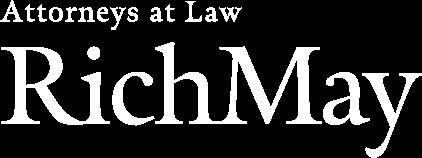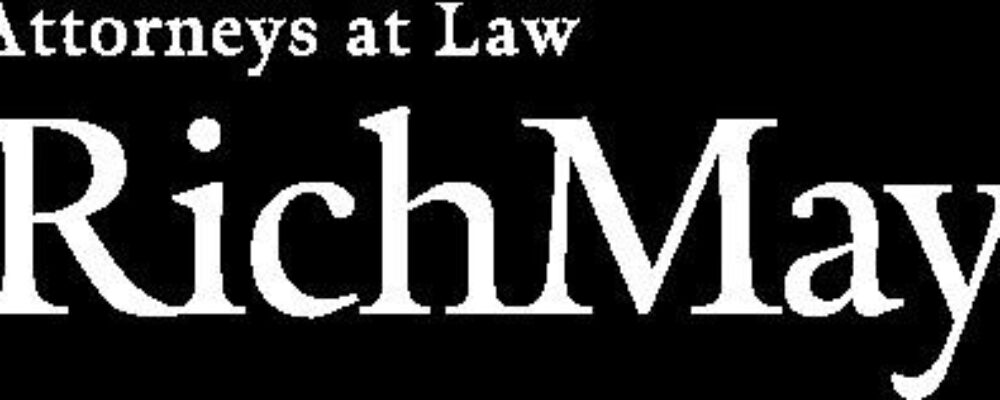Drastic regulatory changes are taking place in the world of private funds. On August 23, 2023, the U.S. Securities and Exchange Commission (SEC) introduced amendments to the Investment Advisers Act of 1940 (the “Advisers Act”) which substantially impact both SEC-registered investment advisers and unregistered investment advisers. The SEC voted 3-2 along party lines to adopt a set of new rules under the Advisers Act, with an express focus on private funds, which have far-reaching implications for both SEC-registered investment advisers and unregistered investment advisers (the “New Rules”).
The New Rules are adopted with the intent of enhancing transparency, and will require SEC-registered investment advisers to:
- Deliver quarterly statements to investors, which detail information regarding private fund performance, fees, and expenses.
- Conduct an annual audit of each private fund managed by the adviser; and
- Obtain either a fairness opinion or valuation opinion in connection with an adviser-led secondary transaction (as defined below).
Additionally, the New Rules set forth new obligations for all private fund advisers regardless of registration status (i.e. registered, unregistered and exempt reporting advisers). These include:
- A prohibition on activities and practices that are deemed “contrary to the public interest and protection of investors,” with the caveat that such conduct may be permitted if the adviser provides certain disclosures and in certain circumstances, obtains investor consent.
- A bar on providing certain types of preferential treatment to investors (e.g. side letter redemption and reporting rights, where such preferential treatment may have a material, negative effect on other investors, or reduced fees or carries), unless disclosed to both current and prospective investors.
Below, we discuss further the ways the New Rules impact SEC-registered investment advisers (“RIA’s”), unregistered investment advisers, and implementation timelines for each amendment.
I’m an SEC-registered investment adviser (RIA); how do the New Rules affect me?
For RIAs who manage private funds, the New Rules introduce enhanced and more comprehensive reporting requirements, with the legislative intent of increasing transparency for both regulators and investors. Bear in mind that in this section we discuss aspects of the New Rules that apply only to RIAs, and not to unregistered advisers or exempt reporting advisers (“ERAs”). The pertinent amendments specifically affecting RIAs include the following:
- Quarterly Statement Rule – Requiring private fund advisers to issue quarterly statements to private fund investors in tabular format, disclosing detailed fund-level information pertaining to performance, the cost of investing in the private fund, fees, and expenses paid to the private fund, in addition to any other amounts or compensation paid to the adviser or its related persons. The Quarterly Statement rule contains multiple dimensions, all of which must be displayed with equal prominence. These are:
- RIAs will be required to disclose, in tabular format, a detailed accounting of all compensation, fees, or other amounts paid to the adviser or its related person; as well as any compensation, fees, or expenses paid by the private fund itself.
- RIAs must also disclose in tabular format a thorough accounting of all investment compensation allocated or paid to the RIA and/or its related persons by each covered portfolio investment during the reporting period. This includes but is not limited to origination fees, management fees, consulting fees, and transaction fees.
- RIAs must disclose the calculation methods for expenses, payments, allocations, rebates, waivers and offsets.
- RIAs must disclose information regarding the private fund’s performance. The treatment of disclosure differs for liquid funds versus illiquid funds (meaning, a private fund that is not required to redeem interests upon an investor’s request). The disclosure methodology distinguishes liquid funds versus illiquid funds.
- Private Fund Audit Rule. Under this amendment, private funds must undergo a financial statement audit in accordance with the audit provision of Rule 206(4)-2 of the Advisers Act (the “Custody Rule”). This contrasts the “surprise examination” structure currently in effect for registered private fund advisers. This new standard for audits is designed to check the adviser’s valuation of private fund assets, and protect investors in such private funds against the misappropriation of fund assets. Additionally, advisers will need to maintain copies of audited financial statements, and maintain a record of each recipient and the date sent.
- Adviser-Led Secondaries Rule. This amendment shall require an RIA to secure either a fairness opinion or a valuation opinion, when offering existing fund investors the option between selling their interest in the private fund and converting or exchanging their interests in the private fund for interests in another vehicle advised by the adviser or any of its related persons (an “adviser-led secondary transaction”). These opinions must be disseminated to investors, and advisers focus on confidentiality provisions in such opinions, providing that they have carve-outs for sharing such opinions with investors.
- Those providing the fairness opinion or valuation opinion must consider the following:
- Whether the price being offered to the investors is fair; or
- The value, as either an amount or range, for any assets being sold as part of the transaction
- Those providing the fairness opinion or valuation opinion must consider the following:
- Amendments to Books and Records Rule. Under an amendment to Rule 204-2 of the Advisers Act, RIAs are required to retain books and records pertaining to the New Rules, as well as pertaining to the restricted activities provision (discussed further, below). This amendment seeks to facilitate internal and external monitoring of compliance. Such books and records must be maintained in an easily accessible place for no less than five years from the end of the fiscal year during which the most recent entry was made.
- The New Compliance Rule. Unlike the above-described amendments, the amendments to the compliance obligations under the Advisers Act apply to all SEC-registered investment advisers, regardless of whether they work with private funds. Under this amended compliance rule, RIA’s will need to maintain written documentation of their annual review of compliance procedures to allow the SEC to track whether the adviser is complying with the Advisers Act. This requires advisers to document in writing the adviser’s adequacy and effectiveness of its policies and procedures. There is no specific format or particular elements for which such annual documentation must be made under the amended compliance rule. The written documentation requirement is intended to be flexible to allow advisers to continue to use the review procedures they have developed and record the results of their annual review in a manner that best fits their business.
I’m a private fund adviser (including SEC registered, unregistered or an ERA); how do the New Rules affect me?
The new amendments to the Advisers Act are drafted to broadly impact both RIA’s, unregistered advisers and ERAs. The amendments aim to create a level playing field between all advisers by imposing similar reporting and compliance obligations across the board.
The following discussion applies to all advisers to private funds, including RIAs, unregistered investment advisers and ERAs who advise on private funds.
- Restricted Activities Rule. The New Rules expressly restrict all advisers, regardless of registration status, from engaging in certain conflict-generating conduct without disclosure being made, or at times, without investor consent being obtained. The Restricted Activities Rule lays out five specific activities that are deemed “contrary to the public interest and the protection of investors”:
- Charging or allocating to private fund fees or expenses associated with an investigation of the adviser without disclosure to and consent from fund investors.
- Charging or allocating regulatory, examination, or compliance fees/expenses to the adviser unless the adviser has disclosed such fees to investors;
- Lowering the total amount of an adviser clawback by the amount of certain taxes, unless such pre-tax and post-tax amount of the clawback are disclosed to the investors by the adviser;
- Charging or allocating fees or expenses pertaining to a portfolio investment on a non-pro rata basis, unless the adviser issues prior written notice of the non-pro rata charge and a description of the way the allocation approach is “fair and equitable” provided the circumstances; and
- Borrowing or receiving an extension of credit from a private fund client without disclosure to investors, and consent from such investors.
- Preferential Treatment Rule. The New Rules bar all private fund advisers from providing preferential terms to investors regarding the following:
- Certain redemptions from the fund (unless such ability to redeem is required by applicable law); and
- Certain preferential information regarding portfolio holdings or exposures, unless such preferential information is offered to all investors; and
- Generally, advisers are barred from providing any other kind of preferential treatment to certain investors unless certain terms thereof are disclosed in advance of an investor’s investment into the private fund and all terms are disclosed promptly after the investor’s investment and updated annually for any interim occurrences.
- Legacy Status. Certain agreements are being “grandfathered” in through a narrow legacy status exemption provided by the New Rule. This amendment provides legacy status protection from the preferential treatment rule prohibition from providing certain preferential redemption rights and information about portfolio holdings. However, the SEC is not applying legacy status to the disclosure portions of the preferential treatment rule. In other words, with respect to legacy private funds, an adviser will be obligated to disclose preferential treatment as required by the preferential treatment rule. This disclosure would include applicable terms of side letters that existed before the compliance date. Such disclosure is required to be made to existing investors in the fund as well as other investors that invest in the fund after the compliance date.
When do I need to start complying with the New Rules?
- The Private Fund Audit Rule and Quarterly Statement Rule shall become effective eighteen (18) months after the date of publication in the Federal Register, in February 2025.
- The Adviser-led Secondaries Rule, Preferential Treatment Rule, and Restricted Activities Rule shall take effect on a slightly different schedule:
- For advisers with $1.5 billion or more in private funds assets under management, 12 months after the date of publication in the Federal Register, meaning, August 2024.
- For advisers with less than $1.5 billion in private funds assets under management 18 months after the date of publication in the Federal Register, meaning, February 2025.
- For all advisers, whether for private funds or not, compliance with the amended Advisers Act compliance rule shall be required 60 days after publication in the Federal Register. The effective date for the amended compliance rule is significantly sooner than all other amendments discussed herein due to the lack of administrative burden on advisers, who generally should already be recordkeeping in some capacity.
What do I need to do now to prepare?
- Although permitted, consider whether you want to continue to enter into side letters with investors prior to compliance date since the material terms of all side letters will need to be disclosed to existing investors and new investors after compliance date.
- If you are not currently having your funds audited (unlikely except in the case of certain exempt reporting advisers not subject to custody rule audit provisions) begin preparations to have all funds audited for 2024.
While none of these changes are effective immediately, it is imperative that all investment advisers that advise private funds adequately prepare for the requirements under the New Rules. For more personalized information on the way these new amendments to the Advisers Act may affect you as an investment adviser, please feel free to contact us.
Disclaimer: This summary is provided for educational and informational purposes only and is not legal advice. Any specific questions about these topics should be directed to attorney Diana Alsabe.
© 2023 by Rich May, P.C. and Diana Alsabe. All rights reserved
Rich May is a Boston-based law firm serving clients throughout the United States and abroad. Since 1937, Rich May has provided knowledgeable, experienced counsel to business and individual clients.
Please visit the firm link to site




